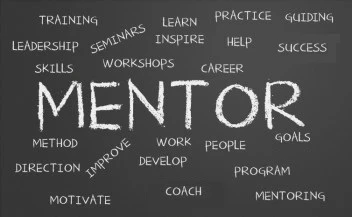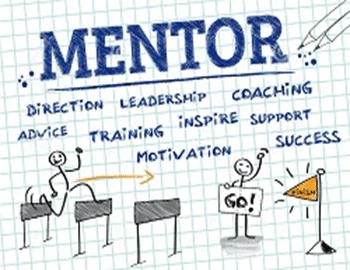Michael DeSafey | Executive Recruiter and HR Professional
Mentoring for Environmental Professionals: Guiding Your Green Career Path to Success
Embarking on a career in the environmental sector can be both exciting and challenging. Whether you’re a recent graduate or an experienced professional looking to make a shift, having the guidance of a mentor can be a game-changer. Today, we’ll explore the invaluable role of mentoring for environmental professionals. We’ll delve into how mentorship can provide guidance, support, and opportunities, ultimately helping you navigate and excel in your green career path.
Finding the Right Mentor
Before we delve into the benefits of mentoring, it’s crucial to identify and connect with the right mentor. Here’s how to go about it:
- Define Your Goals: Determine what you hope to achieve through mentoring. Are you seeking career guidance, technical expertise, or specific industry insights? Having clear goals will help you find a mentor who can meet your needs.
- Look Within Your Network: Start by exploring your existing network. This might include professors, colleagues, supervisors, or industry contacts. You might be surprised to find a mentor within your current connections.
- Utilize Professional Organizations: Many environmental organizations and associations offer mentorship programs. Consider joining these groups to access mentorship opportunities within your field.
- Online Platforms: Websites like LinkedIn and professional networking platforms often have mentorship features that can connect you with experienced professionals in your field of interest.
Benefits of Mentoring for Environmental Professionals
Now, let’s explore the numerous advantages of having a mentor in your environmental career:
- Guidance and Insight: Mentors provide guidance based on their years of experience in the field. They can offer insights into career paths, industry trends, and strategies for success.
- Networking Opportunities: A mentor can introduce you to their professional network, opening doors to new opportunities, collaborations, and potential job leads.
- Skill Development: Mentors can help you identify and develop the skills needed to excel in your field. Whether it’s technical expertise, leadership skills, or communication abilities, mentors can provide valuable advice and resources.
- Confidence Boost: Having a mentor who believes in your potential can boost your confidence and motivation. They can help you overcome self-doubt and imposter syndrome.
- Problem Solving: When you encounter challenges or roadblocks in your career, mentors can offer guidance on how to navigate and overcome them. Their experience often provides solutions you might not have considered.
- Career Progression: Mentors can help you set and achieve career goals. They can advise you on career advancement, promotions, and opportunities for growth.
- Industry Knowledge: The environmental field is constantly evolving. Mentors stay up-to-date with industry changes and can provide you with the latest insights and trends.
- Feedback and Evaluation: Mentors can offer constructive feedback on your work, helping you identify areas for improvement and growth.
- Access to Resources: Mentors often have access to valuable resources, including research materials, industry reports, and educational opportunities. They can share these resources to aid in your professional development.
Establishing a Productive Mentor-Mentee Relationship
To make the most of your mentorship experience, it’s essential to foster a productive relationship. Here’s how to do it:
- Clear Communication: Maintain open and clear communication with your mentor. Discuss your goals, expectations, and any challenges you’re facing.
- Set Objectives: Define specific objectives for your mentorship. What skills do you want to develop? What milestones do you hope to achieve? Setting clear objectives will guide your mentorship journey.
- Respect Their Time: Recognize that your mentor may have a busy schedule. Be respectful of their time and come prepared for mentorship meetings with thoughtful questions and topics for discussion.
- Act on Feedback: When your mentor provides feedback or advice, take it seriously and act on it. Demonstrating that you value their guidance will strengthen your mentorship relationship.
- Show Gratitude: Don’t forget to express gratitude to your mentor for their time and expertise. A simple thank-you can go a long way in maintaining a positive relationship.
Types of Mentoring Relationships
Mentoring can take various forms, each offering unique benefits:
- Traditional Mentoring: This involves a one-on-one relationship between a mentor and mentee, typically with the mentor being more experienced and senior in the field. It’s a structured, long-term relationship focused on career growth.
- Peer Mentoring: Peer mentoring involves individuals at similar career stages mentoring each other. This type of mentoring can be beneficial for sharing experiences and challenges unique to your career level.
- Reverse Mentoring: In reverse mentoring, a less experienced individual mentors a more senior professional, often on topics related to technology, diversity, or generational insights. It’s a two-way learning process.
- Group Mentoring: Group mentoring involves a mentor working with a small group of mentees. This format allows for a broader range of perspectives and collaborative learning.
Overcoming Challenges in Mentorship
While mentorship offers numerous benefits, challenges may arise. Here are some common challenges and strategies to address them:
- Finding a Suitable Mentor: If you’re struggling to find a mentor, consider attending industry events, conferences, or workshops to expand your network. Online platforms and mentorship programs can also help.
- Scheduling Conflicts: If scheduling meetings with your mentor is a challenge, try to be flexible with your timing. Consider setting up regular, recurring meetings to ensure consistency.
- Misalignment of Expectations: If you and your mentor have different expectations, address them openly and collaboratively. Effective communication can help align your goals.
- Personality Conflicts: Sometimes, personalities may clash. If you experience a personality conflict with your mentor, try to find common ground and remain focused on your professional growth.
- Lack of Time: Balancing mentorship with your other responsibilities can be challenging. However, even brief, focused interactions with your mentor can be valuable. Make the most of the time you have.
Paying It Forward
As you progress in your environmental career with the guidance of your mentor, consider paying it forward by becoming a mentor to others. Sharing your knowledge and experiences can be rewarding and contribute to the growth of the next generation of environmental professionals.
Mentoring is a powerful tool for environmental professionals seeking to excel in their careers. A mentor can provide guidance, support, and valuable insights that accelerate your career growth and help you navigate the complexities of the environmental field. By actively seeking out a mentor, fostering a productive mentorship relationship, and paying it forward in the future, you can unlock your full potential and make a meaningful impact in the world of environmental conservation and sustainability.
Webuild Staffing Agency is a leading executive search and staffing agency dedicated to the construction, engineering and environmental industries. To learn more please visit: www.webuildstaffing.com




